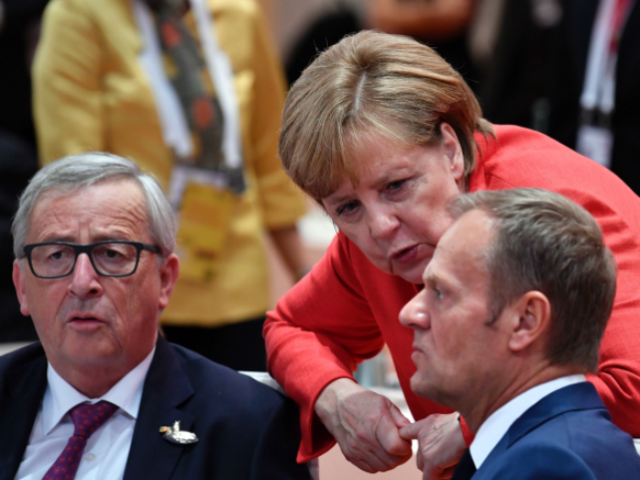The European Union has descended into vicious infighting as it continues to struggle with the migrant crisis, with the President of the Council and the European Commission at each other’s throats.
As head of the European Council which brings together the national governments of EU member-states, Donald Tusk is supposed to facilitate intra-bloc co-operation and represent the EU at the level of heads of state or government, but is regarded as a tool of the German government and “an instrument in the hands of Europe’s liberal-left elite” by the government of his native Poland — which attempted to block his reappointment to his role earlier in 2017.
He has broken with the EU establishment which saved his position, however, by suggesting the bloc should abandon its policy of redistributing migrants throughout the continent through compulsory quotas — an issue which has led to a long-running conflict with conservative countries in Central Europe, including his own.
“Only member-states are able to tackle the migration crisis effectively. The EU’s role is to offer its full support in all possible ways,” he said in a statement issued ahead of an impending EU summit.
“[T]he issue of mandatory quotas has proven to be highly divisive and the approach has turned out to be ineffective.”
But the European Commission, the unelected body which serves as the EU’s executive as well the sole initiator of all EU-level legislation, seems unwilling to back away from the quota policy.
“My position is very clear,” said Dimitris Avramopoulos, the European Commissioner for Migration, Home Affairs and Citizenship.
“The paper prepared by President Tusk is unacceptable. It is anti-European, and it ignores all the work we have done during the past years and we’ve done this work together,” he told reporters, with POLITICO’s describing him as “visibly angry”.
“Our success in managing migration–” a curious choice of words, given the huge cost in terms of both state expenditure and victims of crime and terrorism which has dogged the EU since the onset of the migrant crisis — “cannot be attributed to individual member-states. These are European successes that are the results … of our joint actions, of our joint efforts, of the European Union institutions, its agencies and all members-states.”
Whether or not enforced “solidarity” through migration quotas can ever become a viable option for dealing with the consequences of the migrant crisis remains to be seen, but the fact that resistance to them now appears to be creating conflict between the institutions of the European Union as well as between the European Union and its member-states prove to be a watershed moment.
However, with Angela Merkel reportedly “irritated” by Tusk’s assessment of the quotas, he has already modified his stance — but maintains the best way of tackling migration is through member-state leadership “backed by the EU”, not the other way around.
For his part the President of the European Commission, Jean-Claude Juncker, has suggested Tusk’s role should be absorbed into his own, creating a kind of super-presidency — and eliminating any chance of these sorts of disagreement arising again in future.

COMMENTS
Please let us know if you're having issues with commenting.